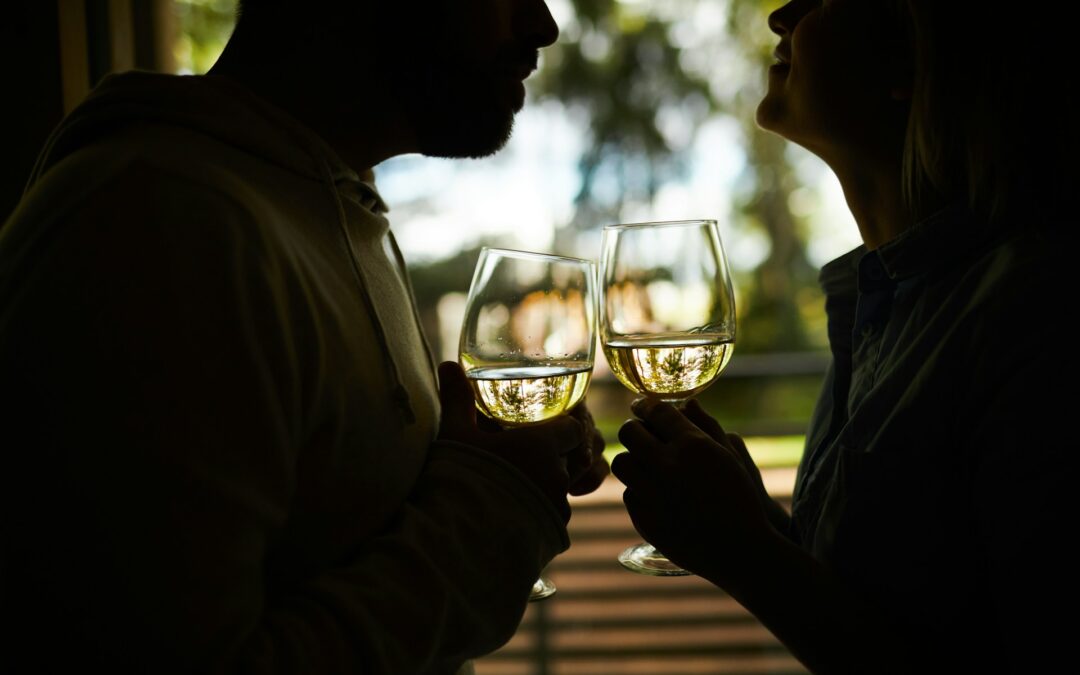Everyone has their favorite type of wine, but not everyone enjoys the aftermath after indulging in a glass or two. Have you ever wondered why some wines seem to treat you worse the next day? More specifically, you might notice that white sweet wine often leaves you with a memorable headache. This curious phenomenon isn’t just your imagination, and understanding the reasons behind it can help you enjoy your wine with fewer worries.
White sweet wine brings delight with its lush flavors, yet it often surprises drinkers with a particularly unpleasant hangover. It might have something to do with what’s inside the bottle that makes it feel different from dry options. In the following sections, we’ll explore the reasons why white sweet wine sometimes packs a bigger punch the following morning and what you can do to minimize the effects.
Why White Sweet Wine Feels Worse the Next Day
White sweet wines owe much of their appeal to their high sugar content. Unfortunately, this excess of sweetness might also be the culprit when it comes to awful hangovers. When you drink, your body breaks down the contents of your glass individually, and sugar plays a significant role in how you feel later.
So, how exactly does sugar contribute to hangovers? Here’s what happens:
– Sugar Dehydrates: Consuming large amounts of sugar can lead to dehydration. When you drink white sweet wine, the combination of alcohol and sugar might leave you feeling parched, adding to that next-day headache.
– Metabolism Strain: Breaking down both alcohol and sugar requires a lot of energy from your body. This double whammy forces your metabolism to work overtime, which might leave you feeling down the next morning.
– Blood Sugar Spike: High sugar content causes your blood sugar levels to spike and then crash, resulting in low energy and added fatigue.
Ultimately, your body’s response to the high sugar levels in white sweet wine is a key player in how you feel post-celebration. This isn’t to say that all hope is lost—understanding these mechanisms helps you make better choices and maybe even dodge a few hangovers along the way.
Alcohol Levels in Sweet Wines
The tantalizingly sweet taste of white sweet wine often masks its underlying strength. These wines can contain higher alcohol levels than you might suspect, further amplifying the after-effects.
Here’s how higher alcohol levels contribute to hangovers:
– Increased Alcohol Content: Some sweet wines are deliberately crafted to have higher alcohol levels, making them pack more of a punch than dry varieties. More alcohol generally means more work for your liver, thus a greater hangover potential.
– Dehydration Amplification: Higher alcohol concentration in sweet wines means more dehydration. As alcohol is a diuretic, it extracts water from your body, potentially leading to that dry, tired feeling the next day.
These traits of white sweet wines explain why a night of indulgence might end with an unexpectedly difficult morning. Understanding this link between flavor and impact can help you manage your wine experience in the future.
Additives and Their Effects
While sugar and alcohol levels play their part, additives in white sweet wine can also affect how you feel the next day. Common culprits include sulfites, which, although naturally occurring, are often added to preserve freshness. For some, these can contribute to headaches or other hangover symptoms.
Here’s a closer look at how additives can affect you:
– Sulfites and Sensitivity: Though not everyone is sensitive to sulfites, those who are might experience increased hangover symptoms. These preservatives aim to keep wine safe and vibrant for longer, but they might not be friendly to all.
– Histamines and Allergens: Found in the skins of grapes, histamines can lead to allergic reactions or intensified hangover effects, such as headaches and nausea. If you find yourself particularly sensitive, you may want to consider wines with lower histamine levels.
While additives can enhance or maintain the qualities of white sweet wine, they can also add to the dreaded morning-after feeling, making it worth understanding their role in your hangover.
Drinking Tips to Avoid Hangovers
If you love white sweet wine but wish to steer clear of feeling rough the next day, some strategies can help. These tips aren’t about swearing off your favorite wine but about enjoying it wisely.
– Hydrate Thoroughly: Drinking water alongside your wine can help counteract dehydration. A simple glass of water between each wine glass can do wonders.
– Eat Before and While Drinking: Snacking or eating a meal can slow alcohol absorption. Choose foods rich in fats and proteins to help line your stomach.
– Pace Yourself: Sipping slowly gives your body time to process alcohol and sugar. Enjoying your drink rather than guzzling it can make a real difference.
By following these tips, you can cherish your white sweet wine moments without dreading the aftermath.
Relishing Your Wine Experience
Wine drinking should be about savoring flavors and enjoying moments, not suffering through after-effects. Understanding how different elements contribute to hangovers can make your wine adventures more enjoyable and less troubling. Whether it’s sugar, alcohol, or additives, knowing what affects your body helps you make informed choices.
Exploring diverse wine types can further enhance your experience. Finding the right balance in what you drink ensures you can delight in the artistry of winemaking. Embracing this mindful approach to drinking encourages you to appreciate each sip without worry, making wine tasting a wonderful and pleasant journey.
Discover the joy of tasting a variety of wines at Lecavalier Cellars, where innovation meets tradition. If you’re curious about exploring different types of wines and want to enhance your experience with white sweet wine, our selection offers a delightful journey for your palate. Learn more about our sustainable practices and enjoy a memorable wine adventure.


